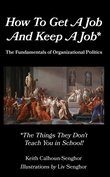
by Michael Lewis ‧ RELEASE DATE: May 4, 2021
An urgent, highly readable contribution to the literature of what might be called the politics of disease.
Awards & Accolades
Our Verdict

GET IT
New York Times Bestseller
IndieBound Bestseller
The bestselling author turns to the Covid-19 pandemic and the failure of the U.S. government to contain it effectively.
“Trump was a comorbidity,” one source told Lewis, speaking of the spread of the virus through the country. The Trump administration ignored the threat, failed to act on it, and then tried to suppress those who were advocating lockdowns, school closures, and other measures to avoid the worst-case scenarios that emerged. As Lewis notes, the Lancet, one of the world’s leading medical journals, calculated that if the U.S. had followed the models of its G7 partners, 180,000 of the nearly 600,000 victims would still be alive. In an intricate background section, Lewis delivers a study of how epidemiologists and others had long predicted the pandemic. A high school student, for example, developed a model for a science-fair project in which she determined that an effective means of control would be to vaccinate young people first, since they were the ones who were interacting socially—just the opposite of the tactic later used of vaccinating older people first. Other case studies include the work of a dauntless California public health examiner who tracked the spread of hepatitis and other communicable diseases, all of which provided object lessons that were often lost to political considerations. George W. Bush emerges as a perhaps unlikely case of someone who did the right thing with respect to epidemics while Barack Obama stumbled before getting it right. As for his successor, Lewis writes, “the Trump White House lived by the tacit rule last observed by the Reagan administration: the only serious threat to the American way of life came from other nation-states.” The result was a woefully disjointed response that “got pushed down in the system, onto local health officers,” most of whom were unprepared for the challenge and lacked the means to do much about it.
An urgent, highly readable contribution to the literature of what might be called the politics of disease.Pub Date: May 4, 2021
ISBN: 978-0-393-88155-4
Page Count: 304
Publisher: Norton
Review Posted Online: May 3, 2021
Kirkus Reviews Issue: May 15, 2021
Share your opinion of this book
More by Michael Lewis
BOOK REVIEW
edited by Michael Lewis
BOOK REVIEW
BOOK REVIEW
More About This Book
BOOK TO SCREEN

by Paul Kalanithi ‧ RELEASE DATE: Jan. 19, 2016
A moving meditation on mortality by a gifted writer whose dual perspectives of physician and patient provide a singular...
Awards & Accolades
Likes

23
Our Verdict

GET IT
Google Rating
Kirkus Reviews'
Best Books Of 2016
New York Times Bestseller
Pulitzer Prize Finalist
A neurosurgeon with a passion for literature tragically finds his perfect subject after his diagnosis of terminal lung cancer.
Writing isn’t brain surgery, but it’s rare when someone adept at the latter is also so accomplished at the former. Searching for meaning and purpose in his life, Kalanithi pursued a doctorate in literature and had felt certain that he wouldn’t enter the field of medicine, in which his father and other members of his family excelled. “But I couldn’t let go of the question,” he writes, after realizing that his goals “didn’t quite fit in an English department.” “Where did biology, morality, literature and philosophy intersect?” So he decided to set aside his doctoral dissertation and belatedly prepare for medical school, which “would allow me a chance to find answers that are not in books, to find a different sort of sublime, to forge relationships with the suffering, and to keep following the question of what makes human life meaningful, even in the face of death and decay.” The author’s empathy undoubtedly made him an exceptional doctor, and the precision of his prose—as well as the moral purpose underscoring it—suggests that he could have written a good book on any subject he chose. Part of what makes this book so essential is the fact that it was written under a death sentence following the diagnosis that upended his life, just as he was preparing to end his residency and attract offers at the top of his profession. Kalanithi learned he might have 10 years to live or perhaps five. Should he return to neurosurgery (he could and did), or should he write (he also did)? Should he and his wife have a baby? They did, eight months before he died, which was less than two years after the original diagnosis. “The fact of death is unsettling,” he understates. “Yet there is no other way to live.”
A moving meditation on mortality by a gifted writer whose dual perspectives of physician and patient provide a singular clarity.Pub Date: Jan. 19, 2016
ISBN: 978-0-8129-8840-6
Page Count: 248
Publisher: Random House
Review Posted Online: Sept. 29, 2015
Kirkus Reviews Issue: Oct. 15, 2015
Share your opinion of this book

by Matthew Desmond ‧ RELEASE DATE: March 21, 2023
A clearly delineated guide to finally eradicate poverty in America.
Awards & Accolades
Likes

19
Our Verdict

GET IT
New York Times Bestseller
A thoughtful program for eradicating poverty from the Pulitzer Prize–winning author of Evicted.
“America’s poverty is not for lack of resources,” writes Desmond. “We lack something else.” That something else is compassion, in part, but it’s also the lack of a social system that insists that everyone pull their weight—and that includes the corporations and wealthy individuals who, the IRS estimates, get away without paying upward of $1 trillion per year. Desmond, who grew up in modest circumstances and suffered poverty in young adulthood, points to the deleterious effects of being poor—among countless others, the precarity of health care and housing (with no meaningful controls on rent), lack of transportation, the constant threat of losing one’s job due to illness, and the need to care for dependent children. It does not help, Desmond adds, that so few working people are represented by unions or that Black Americans, even those who have followed the “three rules” (graduate from high school, get a full-time job, wait until marriage to have children), are far likelier to be poor than their White compatriots. Furthermore, so many full-time jobs are being recast as contracted, fire-at-will gigs, “not a break from the norm as much as an extension of it, a continuation of corporations finding new ways to limit their obligations to workers.” By Desmond’s reckoning, besides amending these conditions, it would not take a miracle to eliminate poverty: about $177 billion, which would help end hunger and homelessness and “make immense headway in driving down the many agonizing correlates of poverty, like violence, sickness, and despair.” These are matters requiring systemic reform, which will in turn require Americans to elect officials who will enact that reform. And all of us, the author urges, must become “poverty abolitionists…refusing to live as unwitting enemies of the poor.” Fortune 500 CEOs won’t like Desmond’s message for rewriting the social contract—which is precisely the point.
A clearly delineated guide to finally eradicate poverty in America.Pub Date: March 21, 2023
ISBN: 9780593239919
Page Count: 288
Publisher: Crown
Review Posted Online: Nov. 30, 2022
Kirkus Reviews Issue: Jan. 1, 2023
Share your opinion of this book
More by Matthew Desmond
BOOK REVIEW
More About This Book
PERSPECTIVES
PERSPECTIVES
SEEN & HEARD
© Copyright 2025 Kirkus Media LLC. All Rights Reserved.
Hey there, book lover.
We’re glad you found a book that interests you!
We can’t wait for you to join Kirkus!
It’s free and takes less than 10 seconds!
Already have an account? Log in.
OR
Trouble signing in? Retrieve credentials.
Welcome Back!
OR
Trouble signing in? Retrieve credentials.
Don’t fret. We’ll find you.





